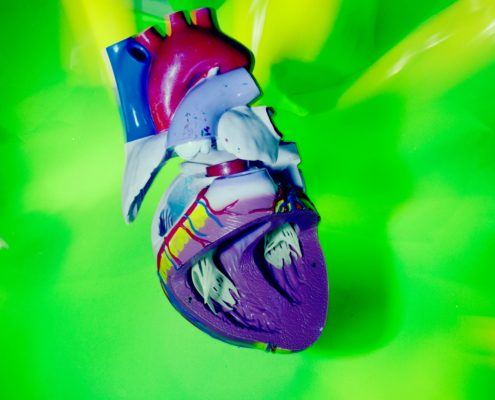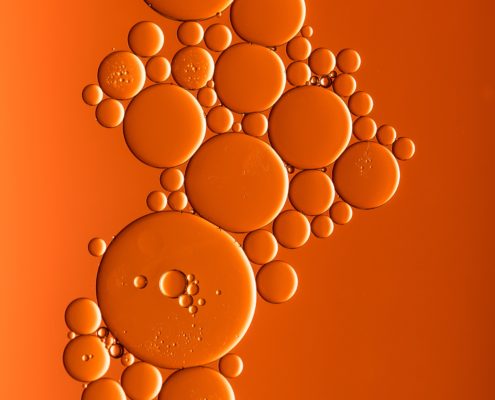5 Things your Doctor Doesn’t Know about High Cholesterol and Diet
When you hear the term, “high cholesterol,” you probably think about heart disease first, and too much saturated fat in the diet, second. But what if neither of these things are true? What if the real cause of heart disease is quite different, and what if your doctor doesn’t know about it?
To be sure, hearing anything different from the above causes of heart disease will send your head spinning. But which would you rather do: continue believing inSANE lies about high cholesterol, change your diet to reduce your cholesterol, and find out later these changes actually caused your heart attack? Or…would you rather learn the truth and bring some SANEity to your life about diet and high cholesterol?
It’s up to you, of course. But the truth will set you free from old diet myths that do nothing but cause misery and illness.
High Cholesterol, Diet and You?
Table of Contents
If you have high cholesterol, you’re not alone. One in three American adults has cholesterol levels considered too high, according to the Centers for Disease Control. Since high cholesterol is a major risk factor for heart disease, says conventional wisdom, the American Heart Association recommends that you should have your cholesterol and other risk factors checked every four to six years – starting at age 20.
Is this necessary, though? Is cholesterol really the boogeyman of your cardiovascular system? Research in the past few years, as well as a surprising number of medical doctors (including cardiologists) say NO. Which brings us to the first thing your doctor doesn’t know about cholesterol, or maybe he or she has just forgotten it in all the hooey about high cholesterol.
Cholesterol is GOOD for You!
Cholesterol has become so vilified that it might surprise you to learn that this substance is not only good for you, but you also need it to live. Every cell in your body is made from cholesterol. This waxy substance helps your metabolism work properly, as it is essential for the production of Vitamin D and bile acids that help your body digest fat and absorb vital nutrients. Cholesterol is also necessary for the production of steroid hormones, which include estrogen, testosterone and progesterone.
Cholesterol is so important to your survival that it doesn’t rely on you to get it from your diet. Your liver takes care of it for you, producing around 75 percent of your body’s cholesterol. The fact that your liver produces such a substantial amount of cholesterol is a huge sign that cholesterol is GOOD for you. But how does your diet play into all of this? That leads us to the second thing about cholesterol and diet your doctor doesn’t know.
Cholesterol in the Diet does not Cause High Cholesterol.
Cholesterol in the diet comes from meat, poultry and full-fat dairy products. For the past 20 years, experts have cautioned Americans to consume less than 300 milligrams of carbohydrates a day. If you want to reduce your chances of heart disease, then, you really have to cut out eggs and all saturated fats. After all, just one egg yolk has 200 milligrams of this artery clogging gook!
This advice stems from the belief that there is a link between cholesterol in your diet and that in your blood stream. This belief started in the late 50s, with the work of Ancel Keys.
Ancel Keys: Creator of the Cholesterol Myth
Ancel Keys, an American physiologist, had an epiphany one day. He wondered why American business executives – surely, he reasoned, some of the best-fed people in the world – had high rates of heart disease. At the same time, Keys noticed the reverse was true in post-war Europe. With food supplies sharply reduced, European countries saw a decrease in heart disease. Keys theorized that cholesterol played a role in cardiovascular disease (CVD) , and presented his hypothesis at the World Health Organization in Geneva.
From 1958 to 1964, Keys and colleagues visited seven countries and examined their dietary habits against their cholesterol levels and rates of cardiovascular disease. Based on his analysis, Keys concluded that high cholesterol was a risk factor for CVD and that a diet high in saturated fat caused high cholesterol.
There are some problems with Keys’ research, however. The biggest problem is that Keys only selected 7 countries out of 22, and the ones he left out – such as France and Germany – were ones he knew had low rates of heart disease, despite diets rich in saturated fats.
Nevertheless, Keys’ research became the truth about eating a high cholesterol diet and heart disease. The fact that the famous Framington Heart Study, conducted around the same time, found no connection between cholesterol consumption and CVD didn’t matter. The only thing that mattered is that the cholesterol industry could make big money on this new medical condition. Pharmaceutical companies started developing drugs to lower cholesterol and food companies started producing and marketing low-cholesterol foods.
Freed from the Myth, but Doctors Don’t Know Yet
In 2015, the U.S. Dietary Guidelines Advisory Committee ruled that, essentially, consuming cholesterol has no effect on your serum (blood) cholesterol level. This committee of experts meets every five years and provides the scientific basis for both medical- and government-established nutritional guidelines.
In their report, the experts said that there would be no more limitations on cholesterol consumption for Americans because there is no evidence that consumption of cholesterol affects serum cholesterol.
Being told, after all these years, that there is NO link between dietary cholesterol and serum cholesterol may shock you and your doctor. But it doesn’t surprise Dr. Stephen Sinatra, a board certified cardiologist and co-author of the bestseller, The Great Cholesterol Myth. Dr. Sinatra, who had been a practicing cardiologist for over 40 years, has long known there was no link between dietary cholesterol and serum cholesterol, or between cholesterol and heart disease, for that matter. Dr. Sinatra says that cholesterol plays only a “supporting role” in heart disease.
He hopes the next time the Advisory Committee meets in 2020, they make the same decision about saturated fat and cholesterol. This brings us to the third thing doctors don’t know about diet and cholesterol.

Fat in the Diet does not Cause High Cholesterol
Thanks to Keys and other factors – including monetary interests – dietary fat was demonized by experts and the media. Eating fat was believed to raise serum cholesterol, which increased the risk of heart disease. The story behind the demonizing of dietary fat is outrageous! The media and sugar industry literally duped American into believing a lie for decades!
The Great Sugar Conspiracy
Due to increased rates of heart disease in the 1950s and 1960s, researchers were searching for something to blame it on. There were two theories for the rise in heart disease – increased consumptions of sugar and increased consumption of saturated fat.
Several studies had already shown sugar to be a contributing cause of heart disease, and that was not okay for the leaders of the sugar industry. The Sugar Research Foundation secretly funded a scientific review of the research that downplayed sugar’s role in heart disease. Of course, this review, which was published in the New England Journal of Medicine, appeared to be impartial.
The three Harvard researchers who wrote it were certainly impartial. But what nobody knew at the time is that the Sugar Research Foundation had selected the studies favorable to their industry, ones that also were critical of saturated fat consumption.
That review set off a chain reaction of non-fat, low-fat everything, a dietary recommendation that has hurt more than helped us. In fact, going low-fat caused the obesity and type 2 diabetes epidemic and contributed to many illnesses. Our bodies need dietary fat to function properly.
The Truth about Saturated Fat and Cholesterol
The truth is that there is not one shred of scientific evidence that a saturated fat causes heart disease. In fact, according to Dr. Sinatra, eating a moderate amount of saturated fat is heart healthy, and it is also good for overall health.
However, the quality of the fat you eat can cause abnormal cholesterol levels. Eating huge quantities of saturated fat, trans fats or hydrogenated fats does have a negative effect on your cholesterol. But eating monounsaturated fats and omega-3 fats lowers your cholesterol and improves its quality.
If high cholesterol is not the enemy of the heart, what is? The answer may surprise you – and your doctor.
What Causes High Cholesterol Levels Then?
There are many reasons for high cholesterol. As previously mentioned, eating bad fats can cause abnormal cholesterol levels, as can excess sugar and carbohydrate consumption. Some people are also genetically predisposed to having high cholesterol levels.
High Cholesterol (in the diet or bloodstream) does not Cause Heart Disease
Inflammation is the real cause of cardiovascular disease, as it is for so many other diseases. Inflammation itself is quite natural. It is your body’s way of fighting threats to the system, such as bacteria, environmental toxins, sugar, wounds, etc. It’s only harmful if it becomes chronic.
Cholesterol does create arterial plaque, and it does build up and clog the arteries, but it’s not because the cholesterol level is too high. It is because small, dense LDL cholesterol particles have become oxidized. Oxidation, or free-radical stress, is one of the major triggers for inflammation. According to Mark Hyman, MD, Director of Cleveland Clinic’s Center for Functional Medicine, that’s the real danger of cholesterol. When these small particles are oxidized, it triggers the build-up of plaque or cholesterol deposits in your arteries.
Though doctors test your HDL (good) and LDL (bad) cholesterol levels, and use these numbers to predict your risk of heart disease, it’s much more complicated than that. Research has shown that there are subtypes of both HDL and LDL based on particle size, and they have different effects and come with different risks.
For instance, small, dense LDL particles are more of a predictor of heart disease than large, fluffy particles. Why? Because they are vulnerable to oxidative damage and more likely to become jammed into arterial walls, creating inflammation. Large, fluffy particles, on the other hand, bounce off the arteries. They’re harmless, even if you have high cholesterol.
So knowing your HDL and LDL numbers aren’t much help when determining your risk for heart disease. What is essential, according to Dr. Sinatra, is to know how much of your LDL cholesterol is subtype A and/or B. (Type A particles are large and fluffy; type B particles are small and dense.)
There are two clinical tests that measure the subtypes of HDL and LDL and analyze the particles within them: Vertical Auto Profile (VAP) and the Lipopotein Particle Profile (LPP).
Sugar and Refined-Carbohydrate Consumption is a Bigger Risk for Heart Disease than High Cholesterol
What makes those small LDL particles? According to Dr. Hyman, the culprit is sugar and refined-carbohydrate consumption. Not only does consuming sugar and carbs (white food) create these dangerous particles, but it also lowers good cholesterol and raises triglyceride levels.
Consuming high fructose corn syrup, which is an ingredient in most sweetened beverages and processed foods, is particularly harmful in this regard.
Using Diet to Reduce Inflammation and Risk for Heart Disease
Research has shown some food groups to have an anti-inflammatory effect on the body. Some of these foods include:
- Green, leafy vegetables, such as spinach and kale.
- Tomatoes
- Nuts, especially almonds and walnuts
- Fatty fish, such as sardines, salmon and mackerel
- Fruits, such as oranges, blueberries and strawberries.
So, if you want to reduce your risk of heart disease, you shouldn’t worry as much about high cholesterol as you do about what is in your diet.
Are you Ready for Some SANEity?
What you eat should be nutritious and anti-inflammatory, such as non-starchy vegetables and nutrient-dense protein. The SANE Solution does just that, focusing on a balanced diet that fills you up fast and keeps you full longer. There is no hunger and no depriving yourself of tasty meals. The goal is to be so full of SANEly good foods, that you can’t even think about reaching for that candy bar or other inSANE food.
Here are the basic food groups:
- Non-starchy vegetables: 10+ servings a day. Non-starchy vegetables contain high amounts of antioxidants, which prevent free-radical formation and inflammation.
- Nutrient-dense protein: 30-50 grams at each meal. Choices include egg whites, plain Greek yogurt, salmon and chicken. Salmon and other fatty fish have high levels of omega-3 fatty acids, making them an anti-inflammatory treat.
- Whole-food fats: 3-6 servings per day. Choices include coconut, avocado, cocoa/cacao, flax seeds. (Be sure to eat the whole food and not just use the oil. The whole food has the fiber and other nutrients that satisfy your hunger.)
- Low-fructose fruits: 0-3 servings per day. Good choices include acai berry, blueberries, cherries and strawberries.
Eating SANEly will also lower your setpoint weight, which will result in long-term weight loss and maintenance. This will further reduce your risk for heart disease. So what are you waiting for? Click here to get started. It’s FREE!
Next Step: Treat High Cholesterol with SANE
There is much more to the SANE lifestyle. Getting 7-8 hours of sleep a night, reducing stress, staying hydrated, and performing eccentric exercises are other important factors in lowering your setpoint.
Ready to finally break free from the yo-yo dieting rollercoaster that can lead to diabesity? By balancing your hormones and lowering your body’s set-point weight, SANE is the solution you’ve been dreaming of.
Want to know the exact foods and serving sizes scientifically proven by over 1,300 peer-reviewed research studies to boost metabolism, burn fat and enjoy virtually effortless weight loss like a naturally thin person?
Begin your exciting journey to lasting, healthy weight loss today. Download the free SANE metabolism boosting food list, cheat sheet and “Eat More, Burn More” weight loss program by







